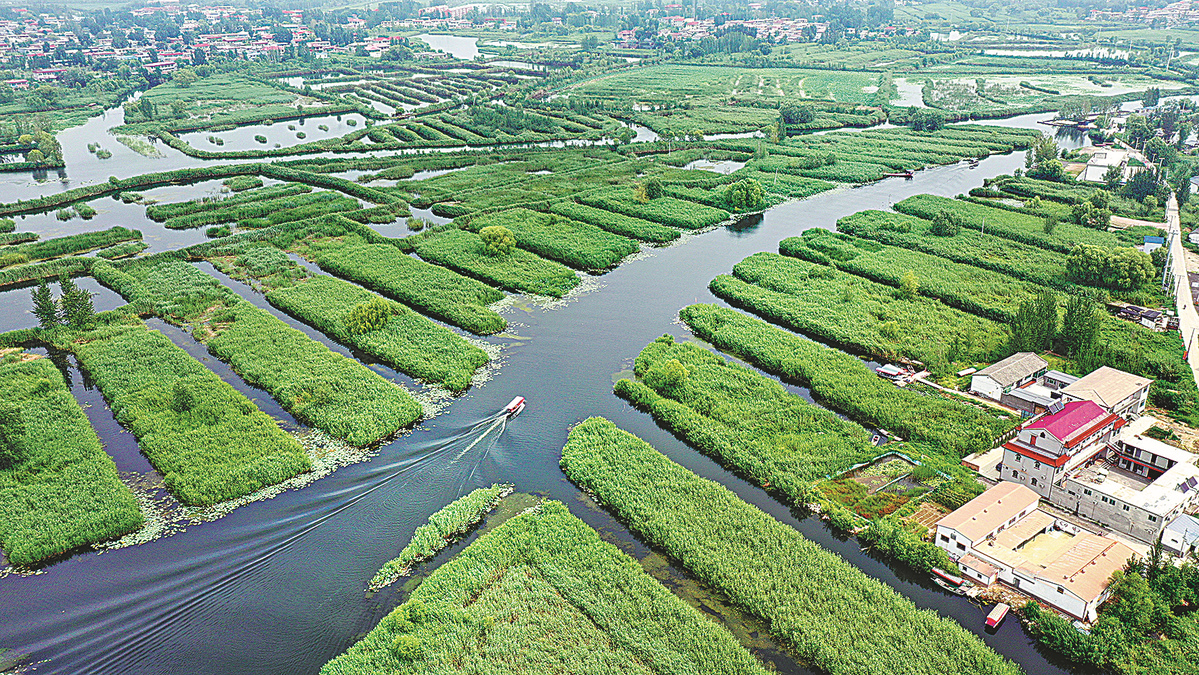Lake cleanup embodies ongoing protection efforts


Despite being heavily polluted four years ago, the water in Baiyangdian Lake and the surrounding areas in Xiong'an New Area, Hebei province, is now suitable for drinking, according to the Hebei Department of Ecology and Environment.
Last year, the quality of the water in North China's largest freshwater wetland reached Grade III, the third-highest in the country's five-tier ranking system, the department said, adding that it is the best quality on record for the lake since 1988.
Grade III is the threshold level for water to be used for drinking.
In 2018, the lake's water was rated at or even below Grade V, the worst level.
"The clean lake of my childhood memories is now coming back," said Liu Zhenan, a senior resident of Xiqianjie, a village near the shores of the lake. In a recent interview with people.cn, an online news platform, Liu said he often strolls around the lake as he sees the water quality improving.
Speaking at a recent news conference in Shijiazhuang, Hebei's capital, Feng Junhui, an official with the department, said, "The rapid improvement is unprecedented in the country."
He added that local authorities have rolled out 66 projects to improve pollution control and help restore the lake's damaged ecosystem.
Last year, in a move to promote a green transition in local socioeconomic development, governments in the area around the lake refused permission for 19 new projects that were deemed to be heavily polluting, Feng said.
He noted that the 852 major companies that discharge wastewater into waterways that feed the lake have installed online water-quality monitoring systems.
Feng added that sewage produced by the 25 major industrial parks in the area is now collected for concentrated disposal. Meanwhile, wastewater from the more than 1,400 villages in the Baiyangdian area is collected for safe disposal.
He said there are now 52 sewage treatment stations in the 39 villages located within the lake's wetland alone. After being treated, the water from the stations is diverted away from Baiyangdian for further use. "We make sure that not a single drop of domestic wastewater enters the lake," Feng said.
As of last year, almost 1,000 hectares of farmland bordering the lake had been returned to the wild in Xiong'an New Area, according to the provincial environmental authority.
Meanwhile, six wetlands have been constructed in the area as authorities make efforts to improve the local ecosystem.
- China's CR450: A new era of high-speed rail at 400 km/h
- TAN SUO SAN HAO to pioneer future of deep-sea exploration
- Xi's discourses on Chinese modernization published in Japanese
- Officials summoned over alleged garbage bin food served to students
- Caring hearts help to enhance quality special education
- Xi sends condolences to South Korean acting president over plane crash




































